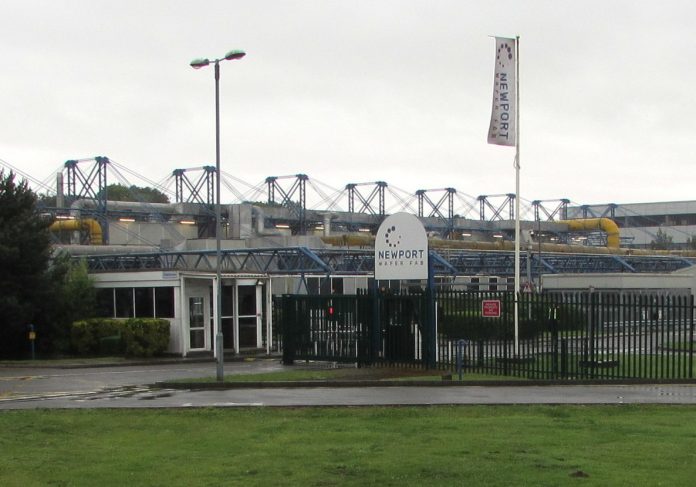Dave Reid, Socialist Party Wales
600 jobs at a semiconductor plant in Newport have been thrown into doubt as the plant is caught between farcical mismanagement by the Tory UK government and geopolitical rivalry between imperialist powers.
Business secretary Grant Shapps has blocked the sale of microchip firm Newport Wafer Fab to Nexperia, a Chinese-owned company, on national security grounds. He has ordered the company to sell its stake in the firm, which will jeopardise the future of the plant. Unless hundreds of millions of pounds of support is provided by the government for selling the plant and finding new customers, 600 well-paid jobs will go.
The plant is one of the UK’s largest and most efficient manufacturers of semiconductor components, and has been making silicon wafers used in the production of microchips since the 1980s when it was privatised by the Tories. It is a key part of a South Wales semiconductor cluster of four plants, which could be all affected by its closure. But after its £63 million purchase by Nexperia, a company said to be linked to the Chinese state, the UK government called in the purchase, alleging national security concerns.
The British government has followed the diktat of the US intelligence agencies by banning Huawei and in blocking the takeover of Newport Wafer Fab.
But it’s the 600 families of the workers whose Christmas will be ruined worrying whether they will be working there next year. The plant does not contribute to high-end superconductors – mainly wafers for switches for phone chargers and lightbulbs, and Shapps has refused to reveal what the alleged security concerns are. The government alleges that there could be “potential reintroduction of compound semiconductor activities” at the plant.
Nexperia even promised to cut all links with the cluster, never to transfer intellectual property out of the Newport plant, not to take on military contracts or pursue compound semiconductor manufacturing, and to have a government monitor on the company board.
The suspicion of Newport workers is that the decision is more about trying to stymie Chinese commercial expansion as part of the developing trade war between China and the US. Nexperia had discussed expanding at Newport, building two more ‘fabs’ that would have created 1,000 jobs.
The whole affair highlights the attitude of the Tories and British capitalism – they intervene in industry to accommodate US demands but refuse to intervene to save the plant, together with its jobs and specialist skills which have been built up over decades and are vital to the local economy, and potentially for the UK economy.
We say:
- Save jobs and skills at the plant
- Nationalise Newport Wafer Fab under workers’ control and management
- Nationalise and integrate the UK semiconductor industry
The global semi-conductor industry has become one of the linchpins of the world capitalist economy. Semiconductors are used in virtually every modern electronic good. A global shortage of semiconductors that arose during the Covid crisis has led to huge slowdowns in the global production of electronics, telecommunications, and especially cars.
Globalisation encouraged an international division of labour with components gathered from around the world to be assembled to produce finished products. The suppliers of most components can be changed if they fail to deliver, but the semiconductor industry is concentrated around just a few producers.
One company, Taiwanese Semiconductor Manufacturing Company, produces 90% of the world’s most sophisticated chips that are needed for high-end electronics, telecommunications and automotive industries.
Realising the vital strategic importance of the semiconductor industry, the two big global rivals, China and the US, are racing to try and develop their own capacity to mass produce the most sophisticated semiconductors to provide a reliable supply to their domestic industries, which would give them a vital edge in industrial production.
The US government is ploughing $52 billion and the EU €43 billion to develop semiconductor production capacity. This chip race has become increasingly competitive, with the Biden government banning the sale of equipment that would allow the development of advanced semi-conductor production in China.
The semiconductor industry is also strategically important because its products can be secretly manipulated for security purposes by companies linked to the Chinese or American state. The blocking of Huawei 5G technology and mobile phones by the US government, which has also been imposed on its allies, including Britain, was in part to ensure that the Chinese state could not use its semiconductors to spy or sabotage infrastructure.







